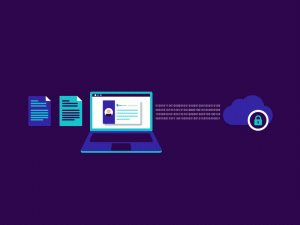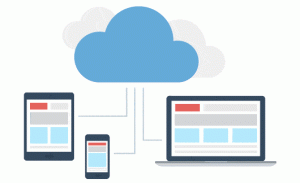Data Backup Solutions – Server Security and Online Backup
The dawn of the digital era gave rise to the digital wars between the hackers and the organisations. The data breaches leading to financial loss of an enterprise narrate only half the story. The damage to a company’s reputation, customer trust and brand image are far more significant. Thus, in this era of digitisation backup solution tops the list of data security in organisations. The technological innovations in cloud computing have led to its acceptance across the globe. The enterprises and organisations are migrating towards the cloud storage for better data processing and protection facilities. However, a few companies are sceptical about cloud acceptance as data protection is the primary concern of this era.
The server backup manager is a vital component of the cloud responsible for secure data backup and recovery. A reliable data protection solution that regularly monitors the data and updates the information in case of slight change. It enables the enterprises to defend, replicate or maintain their critical data in case of natural or human-made disasters and security breaches. The backup solution is a secure storage system with hardware firewalls in place to deflect DDoS attacks and also monitors the data and notifies the team of any discrepancies.
Let us check how the data is secure with cloud backup solution.
1. Data Encryption
The cloud backup managers have their security in place to ensure the physical server security, but data may be vulnerable while in transit. Thus, data encryption plays a vital role in cloud security.
Encryption is the conversion of the data into secret code. It is termed to be the most effective way to achieve data security. Practically, encryption can be done when storing backups. This enables data access only to the people within the business. If the hacker does come into possession of the encrypted backup file, he will not be able to use it unless he has the encryption key.
Encrypted data can’t be accessed in a readable format even if it gets intercepted while online transfer. In other words, data remains inaccessible even after the unauthorized person has gained access to the backup servers.
2. Service Level Agreement (SLA)
The reputable cloud-hosting providers offer SLA’s detailing the level of uptime and data security a customer should expect. It should specify a clear policy on the logical and physical safety of data. While looking for a cloud backup service-level agreement, it is vital to check for a guaranteed level of performance. It should define the measures put in place to ensure data protection.
The policy should also outline the kind of security in place, data access control, and data monitoring methodologies. SLA should clearly describe how the backup data is protected from hardware failure or media loss.
Plainly state the ownership of data in the SLA. It will help you safeguard the sensitive company information from losing when stored on the cloud.
3. Multi-Point Replication
The advanced backup technology in the cloud takes multiple backup replicas of the server using multi-point replication. It makes it possible to have copies of both on-site and off-site recovery points. It protects the disk-based storage using replication and synchronization all over the network. This enables data recovery even after a file system crash in the physical or virtual environment.
Multiple restoration points provide extensive file protection and high performing server backups. It also reduces the impact of backups on server loads.
4. Data Retention Policy
A data retention policy is an organisation’s established protocol for retaining information for operational needs. It plays a vital role in organisations in overall data management. The functional reason to implement this policy involves proper data backup. The policy is a savior for cloud providers and customers in the event of data loss.
The policy ensures the enterprise has the right data and the right amount of data backed up. It determines the data retention and protection laws for an organisation. It is highly essential that the archived data be treated differently from backup data. The policy is responsible for organising data for easy access and disposing of the data no longer needed. It describes the most excellent way to reduce the volume and eventually automate the retention process. Practically, public cloud data storage requires a longer retention term.
Conclusion
When we think of securing the data, we wish to have 100% safer systems. The cloud infrastructure has almost reached this goal. The cloud backup solution makes sure that the data remains protected in the event of a disaster. It is the insurance plan for businesses thus, ensuring the data security from hackers and in disasters. It can surely be stated that the business data is secure with cloud backup solutions. Tight security is the protecting shield of data in the cloud backup; don’t let the hackers break it!



